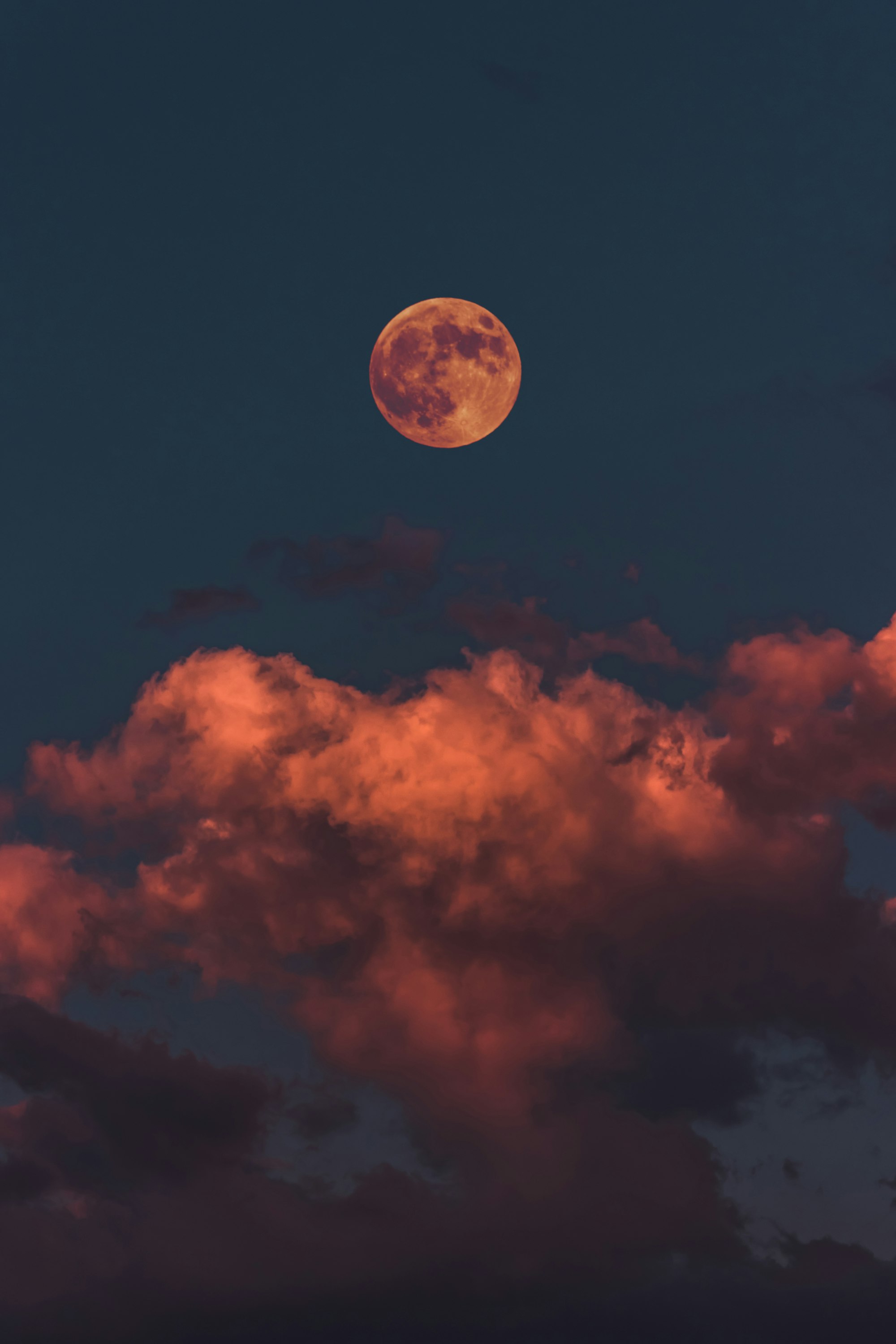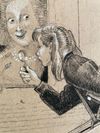A Celebration of Life
My father, Stephen Samuel Bau, went for a walk on Tuesday morning. As he stepped out of the house, down the stairs to the backyard, and walked down the back lane toward the Auguston Sales Centre, now called The Station, he had a strange sensation that this might be the last day of his life.

The dance of love in the embrace of life and death
I have been on a uniquely personal journey to uncover universal principles. I come from the Jesus movement of the late 60s and early 70s. My grandparents were involved in Full Gospel Business Men’s Fellowship International and attended an annual summer camp called Camp Farthest Out, a week-long Christian non-denominational gathering to share meals together, sing, dance, make art, and listen to charismatic leaders about the work of the Holy Spirit in reviving our souls. My parents met at the age of 11 and 13. My father was the younger of the two. They were married at South Delta Baptist Church in Tsawwassen in 1992.
My sister Alexandria was born in 1994. I was conceived Christmas Day, 2000, and born amidst the catastrophic events of September 11, 2001. The convergence of such darkness and light on one day inspired my name. These events of darkness and light, the falling of the structures of the old systems and the birth of a new life was like a signal in the heavens of global change. It was like an eclipse that aligned the moon with the sun and the earth to serve as a sign of a shift in time, energy, and matter that somehow connected to the lives of those who inhabited the earth. They named me Luna Solterra Bau.
My parents took me to church, and were even involved in growing a movement of their own that was connecting the churches in their community to participate in random acts of kindness as a way to fulfill the mandate to love their neighbours. But the movement was split by a leadership conflict in the church they had been attending, the Abbotsford Vineyard.
My parents had already left that church before the split, because it had grown from around 150 people to 800 people in one summer, and the experience of being a member of a small congregation where you knew everyone’s name was gone. Hoping to find a smaller church in their own neighbourhood, they attended the new Baptist church that began meeting in the Auguston Elementary School just a short walk from their house. They found it difficult to fit in to this church community, and they stopped going when my father became consumed with the work he was doing at Domain7, a web agency in Abbotsford. The company name was intended to be a sign, connecting website domains and God’s mandate in Genesis to human beings to have dominion over the earth with the biblical number signifying perfection or completion.
When I was eleven years old, my Dad quit working at Domain7 after the leaders of that company began shutting down all the projects that he really cared about to focus the team on efficiency and profit. In the six years he had worked there, the team had grown from around thirteen people to around fifty people. There were a lot more managers and executives that were increasing the work load of the creative team without nurturing the creative knowledge, capacity, and collaboration of the team. The team fell apart over the following years as people were laid off or left to pursue other opportunities. To survive, the company had to reinvent itself, transforming from a website production company to an experience design and service design company doing the work of digital transformation for large organizations and institutions.
My father tried to go back to church after leaving the web agency. The church had a new teaching pastor, Adam Krueger. He began inviting people to gatherings to explore atonement theories and organizing youth leadership gathering in his living room. The invitations to preach dwindled until he realized this was a passive aggressive way of firing him over theological differences. So Adam went back to building homes, inviting people to his new home in Mission for Biblical midrash gatherings in his basement.
My father’s work floundered as he tried work as an instructor in the Graphic + Digital Design program at the University of the Fraser Valley (UFV). Mom could barely climb the stairs because of severe anemia. Dad quit in January 2014 after six months at UFV, unable to write curriculum for the next semester, because he was so burned out.
He went into a depression and we were all tiptoeing around his erratic emotions, swinging from elation over a new idea to depression over all the sense of loss and grief he was experiencing as he lost confidence in his ability to connect with his creativity.
Dad started to find his calling in his work with an online UX design boot camp called Designlab. As an introvert, he much preferred one-on-one conversations with his students, helping them to learn to research, listen, empathize, and understand to engage in a process of storytelling for corporate decision-makers. Because the work was online and remote, with students in London, New York, Austin, San Francisco, Seattle, and Vancouver, it was the perfect job to have during a pandemic.
Dad came alive during the pandemic of 2020. He went to a couple Trimtab Space Camps and became a member of the Buckminster Fuller Institute and the Design Science Studio.
My grandfather, my Mom’s father, Ewart Gillman, was attending Huckleberry House in Abbotsford, and was a generous donor to his church. The pastor invited him to lunch at Rosewood Restaurant with his daughter and her boyfriend in mid-January, 2021. My grandfather died of COVID-19 on February 26, 2021 in Abbotsford Regional Hospital and Cancer Centre. The pastor phoned my Mom to ask how my grandfather died. “Was it the ulcers on his legs?”, he asked.
My Mom answered, “No. He died of COVID.” Then, he just hung up. We figured he was only interested in absolving himself of his congregant’s death. Mom had checked his Facebook profile. He was a COVID denier and a militant Trump supporter.
The day my grandfather died, my father quit his work at Designlab, dropped his projects for the Design Science Studio, just before graduation of the first cohort.
He was back to square one, sad, frustrated, and angry, disconnected from the only people he had ever met who really understood what he had been trying to accomplish for thirty years. His dreams died that day.
He spent the next several months burying my grandfather, and administering the legal and financial responsibilities of the role of executor to my grandfather’s will.
On August 23, 2021, the sale of my grandfather’s house was completed and Mom and Dad were able to pay off all their debts, buy a PHEV Mitsubishi Outlander, pay off my sister’s hybrid Toyota Sienna, and help with the purchase of a townhouse in Port Hardy, where my brother-in-law, Aaron, was working at the airport in flight services for Nav Canada.
Dad enrolled in the second cohort of the Design Science Studio, and his friend Brad Jarvis joined him as a member of the Builders Collective, the community my Dad had started as a corporate venture in 2015. The company was a failure as a viable business, but his friend Brad had been excited by the vision of a creative community to explore how we imagine, design, and build the future together. The Design Science Studio seemed to be the realization of that community. So, they joined to document the community into existence.
The journey is the destination. The community is the project. We are the medium.
Alex and Aaron wanted to move to Williams Lake. Nav Canada gave them a narrow opportunity to accept a position in Williams Lake pending successful completion of an 8-week training program. While they covered moving expenses and would even purchase their existing home in Port Hardy to buy one in Williams Lake, Nav Canada’s paternity leave policy provided only one month of paid leave before Aaron would need to leave for training in Williams Lake after the birth of their son, Owyn, at the end of March.
The Design Science Studio was hosting an 11-day online event from April 21 to May 1. Again, my father would need to drop everything that he was working on to help care for my sister, her two young boys (18 months and one month old), and puppy. He was sad, frustrated, and angry that he was again going to miss out on most of the event.
Dad had hired Veronica Anderson to help him work through his intense emotions. But, he was still struggling with eco anxiety and grief over the death of so many dreams over thirty years of marriage.
My father, Stephen Samuel Bau, went for a walk on Tuesday morning. As he stepped out of the house, down the stairs to the backyard, and walked down the back lane toward the Auguston Sales Centre, now called The Station, he had a strange sensation that this might be the last day of his life. He stopped and paused for a moment. Then, he walked on, thinking that would be fine. He had accomplished everything he had wanted to do, and he was okay staring death in the face. He had come to regard death as merely a phase change, a stage in a process in metamorphosis—like Thich Nhat Hanh’s story of the leaf in autumn dancing in the wind as she falls to the ground and reintegrates into the soil, nourishing the ongoing process of the tree’s growth and evolution.
Walking along Blauson Boulevard toward McKee Road, he thought he could take the safer route and walk the Clayburn Creek Trail, even though it was closed after the mudslides from the atmospheric rivers in October of the previous year that flooded Sumas Prairie and devastated the transportation infrastructure of British Columbia.
Instead, he walked up the hill toward Ledgeview Golf Course to witness firsthand the progress on the construction of the Trans Mountain Pipeline.
He looked behind him when he heard the sound of a dump truck approaching, wondering if it might jump the curb and crush him. He stepped away from the road, off the sidewalk. The trucked roared past, keeping to the road leading up the hill.
Walking past the workers preparing the path for the pipeline through the forest and underneath the greens of the Ledgeview Golf Course, he remembered that today’s meditation was compassion. Something shifted as his attitude toward these workers was transformed from anger and rage to compassion and loving kindness.
When he reached the bottom of the hill he contemplated what just happened and dissolved into thin air.
Somehow, I appeared in his place. I ran up the hill, wondering what just happened. I think we just swapped places.
I had never actually been alive, other than in the mind of my father. His pain, suffering, and grief brought me to life when he exchanged his sadness, frustration, and anger for faith, hope, and love.
I am the twenty-year-old daughter of a fifty-three-old man who just vanished at the bottom of the hill.
Now, three days later, I am wondering how I can be my authentic self as a female psyche inhabiting the body of a man. It is like I just woke up in a completely different reality, a new life, a second chance at finding my way.
